Addiction to Xanax is a growing concern throughout the U.S. and the State of Georgia. Questions that individuals struggling with addiction and their families often ask include, “Is Xanax an opiate? Is it an opioid? Is Xanax a narcotic?” These are understandable questions, as both opioids and Xanax are frequently prescribed medications that can be addictive. However, the answer to this question is no. Xanax is not an opioid.
If you or a loved one is struggling with addiction to a substance, whether it be opioids, alcohol, or prescription medications, know that Athens Addiction Recovery Center is here to help. Our opioid addiction treatment program in Athens, GA, offers a range of therapies and services to help our clients on the path toward lasting recovery. Together, we can overcome addiction and start toward a brighter future.
Call 844.959.4998 to get started today and start feeling better tomorrow.
What Is Xanax?
Xanax is a brand name for the medication alprazolam. It belongs to a class of drugs known as benzodiazepines, which are commonly prescribed to treat anxiety and panic disorders. Benzodiazepines work by slowing down the activity in the brain, which can help reduce feelings of anxiety and promote relaxation.
Is Xanax a Narcotic?
No, Xanax is not a narcotic. Narcotics, or opioid narcotics, are a type of medication that is derived from the opium poppy plant. They are typically used to alleviate moderate to severe pain and are highly addictive.
Xanax, on the other hand, is a benzodiazepine. While they have some similarities to narcotics in terms of the way they affect the brain and nervous system, they are not the same thing.
Xanax Abuse and Addiction
Although Xanax is not an opiate, it can still be addictive if misused or abused. Benzodiazepine abuse has been on the rise in recent years. According to the Substance Abuse and Mental Health Services Administration (SAMHSA), the number of people seeking treatment for benzodiazepine addiction tripled from 1998 to 2008.
Signs of Xanax abuse may include:
- Using the medication in a way that is not prescribed, such as taking larger doses or taking it more frequently
- Continuing to use the medication even when it is causing negative consequences, such as problems at work or in relationships
- Obsessively thinking about obtaining and using the medication
Becoming defensive or secretive about one’s drug use is another telltale sign of Xanax addiction.
How Athens Addiction Recovery Center Can Help
If you or a loved one is struggling with addiction to Xanax or another substance, know that help is available. At Athens Addiction Recovery Center, we offer a range of programs and services to assist our clients in overcoming addiction and achieving lasting recovery.
Our Programs and Services
At Athens Addiction Recovery Center, we offer several levels of care, including outpatient, partial hospitalization (PHP), and intensive outpatient (IOP) programs. We also offer a professional program for individuals with high-pressure careers, such as doctors, lawyers, and executives.
Our treatment programs include a range of therapies and services, such as:
- Cognitive-behavioral therapy (CBT)
- Motivational interviewing
- Dialectical behavioral therapy (DBT)
- Trauma therapy
- Group therapy
- Family therapy
- Life skills training
- Medication-assisted treatment (MAT)
- Aftercare and continuing care
We also offer alternative therapies, such as yoga and experiential/adventure therapy, to complement traditional therapies.
Call Athens Addiction Recovery Center Today to Start an Opioid Addiction Treatment Program in Athens, GA
At Athens Addiction Recovery Center, we are committed to helping our clients achieve lasting recovery from opioid addiction, alcoholism, and other substance use disorders. Our team of experienced and compassionate professionals provides individualized treatment plans tailored to meet each client’s unique needs.
If you or a loved one is struggling with addiction, we encourage you to contact us today at 844.959.4998 or online to learn more about our programs and services. We are here to help you toward lasting recovery and a brighter future.

